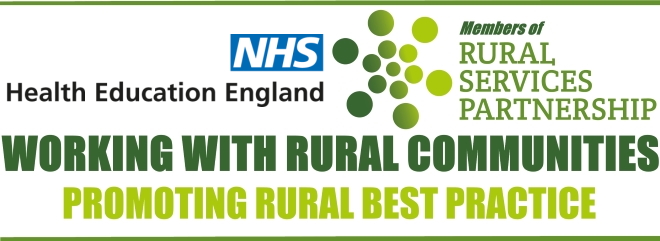T: 01822 851370 E: [email protected]
Visit RSN Survey about life in rural England to find out more.
Rural health workforce shortages

The distribution of healthcare professionals into rural areas is an issue in many parts of the country, for example in Lincoln, so it was fitting that the city’s university jointly hosted, with Health Education England (now NHS England). a lecture by Professor Roger Strasser in November 2022 on his widely appraised rural workforce research.
Lincoln, like other rural communities, is adversely affected for a number of reasons:
- Rural communities are ageing more rapidly than urban areas, with the younger population tending to decline the more rural the settlement type.
- Older people experience worse health and have greater need of health and care services.
- Access to health and care services is often poorer than in urban settings.
- Health outcomes are also poorer in coastal areas. The pleasant environment attracts older, retired citizens to settle, who inevitably have more and increasing health problems.
- An oversupply of guest housing has led to Houses of Multiple Occupation which leads to concentrations of deprivation and ill health.
- Unemployment tends to be very low in rural communities, but Lincolnshire does have higher-than-average long-term unemployment among under-25s, along with a relatively high number of people who can’t work due to illness.
- There are also hard-to-fill vacancies exacerbated by COVID-19 and national skills shortages [source: Lincolnshire County Council: creating strategic alliances for employment and skills challenges.].
Professor Strasser is a leader in the global reform of health professional education and has become one of the world’s foremost authorities in rural, socially accountable medical education. His publication profile is extensive and he has also provided consultant advice to many international government and non-government organisations.
The lecture included reference to a number of strategies that organisations can employ to attract their workforce to rural areas. These included strategies and programmes that NHS England is at the forefront of. Professor Strasser:
- directly referenced the NHS England’s programme to help tackle health inequalities in rural and coastal areas;
- spoke of the importance of, “access to digital online resources [as being] key to reaching out to rural communities.” The knowledge and library servicesgives all NHS staff the right knowledge and evidence to achieve high-quality, safe healthcare and health improvement;
- highlighted the retaining of staff as important as recruitment, stating, “It’s important to recruit but also to ensure we keep the people we’ve got.” The RePAIR(Reducing Pre-registration Attrition and Improving Retention) project has enabled us to gain an in-depth understanding of the factors impacting on healthcare student attrition and the retention of the newly qualified workforce in the early stages of their careers; and
- also said, “The first step to a facilitated rural career pathway is the promotion of health careers,” whereas our Health Careers website offers information of over 350 career choices in the NHS.
In addition to these programmes, through the Enhance Generalism Leadership and Social Medicine Programme, we are training healthcare professionals to fully understand the needs of rural and coastal communities by working with and for the communities to better healthcare provision.



